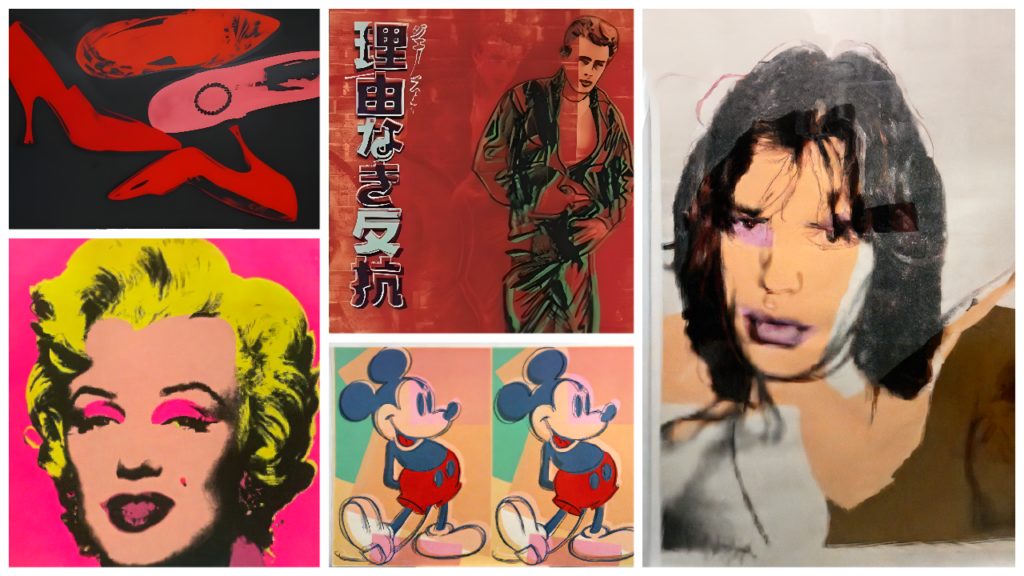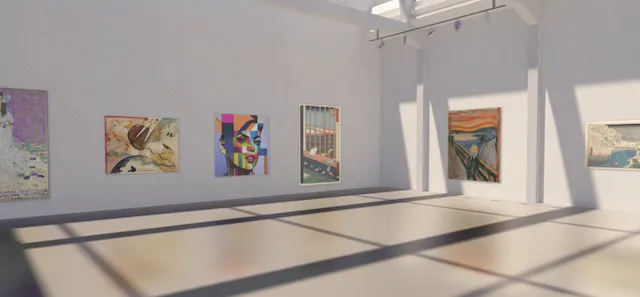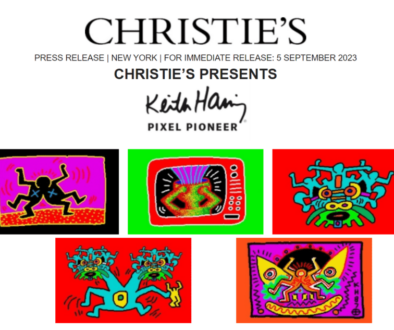Freeport Launches Platform for Art Lovers to Own a Piece of Andy Warhol’s Legacy
Get ready art lovers, because Freeport has just completed its Reg A review with the U.S. Securities and Exchange Commission, and is preparing to launch its blockchain-based platform with an exclusive collection of four Andy Warhol prints! This groundbreaking platform is set to democratize the world of fine art investing, making it accessible to anyone who wants to own a piece of blue-chip art.
The four Warhol prints in the launch collection include some of the artist’s most iconic works, such as “Marilyn” (1967), “Double Mickey” (1981), “Mick Jagger” (1975), and “Rebel Without a Cause (James Dean)” (1985). Each print is limited to just 1,000 lots, and those on the waitlist will have first access to these coveted pieces.

What’s more, Freeport’s platform goes beyond just investment opportunities – it also facilitates experiences for community members to interact with the artwork they own. Customers can display their pieces in a high-resolution personal gallery, select frames, and even view other community members’ galleries with rich social interactions like comments and likes.
“We are beyond thrilled to launch the Freeport platform and start opening access to the once-exclusive world of fine-art investing,” said Colin Johnson, CEO and Co-Founder of Freeport. “Our platform goes far beyond just fractionalizing shares of fine art into security tokens—we’ve built a fully-immersive and interactive platform hosting an art-centric community and redefining the ownership experience surrounding fractionalized art.”
With Freeport’s launch just around the corner, art lovers and investors alike can rejoice in the fact that they will finally have access to fine art investing in a way that was once out of reach. Don’t miss your chance to be a part of this exciting opportunity to own a piece of history and experience the world of fine art like never before!
Why ERC20 vs. NFTs
ERC-20 tokens are fungible, which means that each token is interchangeable with every other token of the same type. This makes them ideal for use as a currency or for other applications where uniformity is important. NFTs, on the other hand, are non-fungible, which means that each one is unique and cannot be exchanged for another NFT in the same way that money or ERC-20 tokens can.
The recent SEC review of Freeport’s Reg A filing was significant because it paved the way for the launch of a platform that uses blockchain technology to fractionalize ownership of fine art into ERC-20 tokens. This type of platform enables individuals to invest in blue-chip art and own a fractional share of the artwork, which can then be traded on the blockchain.
By completing the SEC review, Freeport demonstrated that it is complying with regulatory requirements and is operating within the bounds of the law. This is important because it helps to establish the legitimacy of blockchain-based investment platforms and provides a level of assurance to investors who may be wary of the emerging technology.
While NFTs and ERC-20 tokens have their own unique applications, the SEC review of Freeport’s Reg A filing highlights the growing interest in using blockchain technology to create new investment opportunities, particularly in the art world, where fractional ownership of high-value assets has traditionally been out of reach for most people.
Andy Warhol impact on art history
Andy Warhol was one of the most iconic and influential artists of the 20th century. Born in Pittsburgh, Pennsylvania in 1928, Warhol showed an early interest in art and began his career as a commercial illustrator in the 1950s. He quickly gained recognition for his unique style, which incorporated vivid colors and bold, graphic images.
In the 1960s, Warhol became a central figure in the Pop Art movement, which celebrated the imagery of consumer culture and mass media. He produced a wide range of work during this period, including paintings, prints, films, and sculptures, many of which featured images of celebrities like Marilyn Monroe, Elvis Presley, and Jackie Kennedy.
Warhol was also known for his innovative use of screen printing, a technique that allowed him to reproduce images quickly and cheaply, and which became a signature element of his work. He often used this technique to create repeating patterns and bright, contrasting colors, which gave his work a distinctive, eye-catching quality.
Throughout his career, Warhol continued to push the boundaries of art and popular culture, and his influence can still be seen today in the work of countless artists across a range of mediums. He passed away in 1987, but his legacy as one of the most important artists of the 20th century lives on.
Jane Holzer made this all possible
Jane Holzer is an American art collector, film producer, and former actress who is best known for her association with the Pop Art movement of the 1960s. She was born in 1940 in Florida and later moved to New York City, where she became a regular at the Factory, the studio of artist Andy Warhol.
Holzer quickly became a central figure in Warhol’s circle, appearing in several of his films and serving as a muse and inspiration for many of his most iconic works. She also became an avid collector of contemporary art, acquiring works by artists like Roy Lichtenstein, Claes Oldenburg, and Tom Wesselmann.
In the years since her time at the Factory, Holzer has continued to be a prominent figure in the art world, serving on the board of numerous museums and galleries and curating exhibitions of contemporary art. She has also remained a passionate collector, and her personal collection includes works by many of the most important artists of the last half-century.
Today, Holzer’s legacy as a key figure in the Pop Art movement and a visionary collector and patron of the arts continues to inspire new generations of artists and art lovers.



